Approach & Methodology
Musawah uses a holistic framework that integrates Islamic teachings, universal human rights, national constitutional guarantees of equality and the lived realities of women and men. The Global Life Stories Project, a transnational effort like all of Musawah’s work, began with the question of how women experienced qiwamah and wilayah—male authority and guardianship—in their daily lives and to what extent their experiences correlated with the theory behind the concepts.
Our methodological approach in this Project was informed by two main principles that for us reflected Islamic and feminist values. Our approach foregrounds Islamic ethics of justice and the equal worth and dignity of all human beings, who are all God’s creatures and moral agents on earth with a responsibility of doing good, forbidding evil and building human civilization.
We undertook this project as women who believed that these Islamic ethics should be central to all Muslim legal and social norms and sensibilities. We believe that knowledge— especially that grounded in experience—offers a path towards equality and justice in Muslim countries and contexts.
In addition, our methodology was developed as an ethical feminist inquiry characterized by a number of key elements consistent with Musawah’s knowledge building approach. Thus, our processes and outcomes were:
- Appreciative of alternative forms and sources of knowledge, including non-traditional forms of expertise, contexts in addition to texts and knowledge produced in a democratic and open manner with women’s experiences given voice.
- Focused on building and valuing relationships based on trust, respect, care and reciprocity, hence valuing the collective learning and advocacy process carried out by a diverse group of women (including the Knowledge Building Working Group, pilot team, country teams and resource persons) across many countries and contexts.
- Participatory and egalitarian on multiple levels, ensuring ownership by all participants and the incorporation of various perspectives and types of experience and expertise.
- Reflective in order to improve the methodology, implementation and analysis, making visible our assumptions (discipline-based, political, personal, etc.) and helping monitor the extent to which we upheld the principles we considered important.
- Transformative, namely by producing knowledge that could facilitate empowerment, legal reform and social change.

